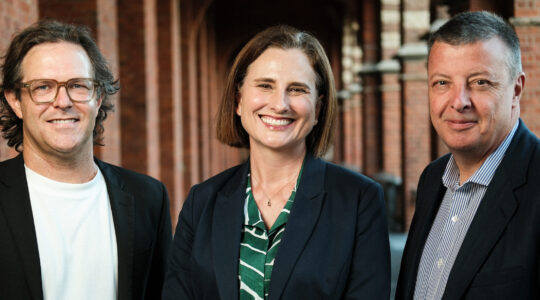Information technology training and jobs are set to evolve significantly over the next five years as Artificial Intelligence creates new organisational needs.
Southern Cross University Senior Lecturer and IT Course Coordinator Vinh Bui said this was likely to mean a decline in junior programming roles but more demand for different streams of IT skills.
Dr Bui said, although AI was currently a “buzz word” term, artificial intelligence had been around since the early 1960s.
Until recently development of the technology had been inhibited by insufficient computer power and lack of data.
“For most organisations there will probably come to the stage in the next few years where they need their own experts in AI,” Dr Bui told Newsreel.
“This does not mean new departments necessarily but people that really know how the technology works and are able to utilise it to the benefit of an organisation or business.”
Dr Bui said recent AI developments meant the technology had become quite complex to manage – from a technical aspect – but also in its use within ethical and community standards.
“We will end up with two groups of people – the ones working to develop new AI and the ones actually bringing it to life by applying it to real organisational needs,” he said.
“AI is already creating new types of jobs and degrees will need to be changed completely over time to take account of these new requirements.”
Dr Bui said most graduates currently obtained jobs in software development because there were a lot of jobs available and big companies still employed many junior developers in their teams.
Over the next few years, he expected a marked decline in junior positions because AI was adept at coding and programming and would be able to take over a lot of the basic tasks.
“The new kind of jobs will be for people who can really leverage AI and be able to formulate the problem into something that AI can solve,” Dr Bui said.
“You need to be able to understand the practical problem and ask AI the right way so AI can give you the right solutions. There will also be a need for people who can develop the solutions that AI will give back to them.”
The changing technology environment meant that IT programs and courses needed to constantly evolve to address changing needs.
For example, there was a declining need for software development and digital user experience specialisations but a growing need for AI-related skills and cybersecurity expertise.
“In our area, we always need to be developing something new,” Dr Bui said. “We never get a chance to actually stop.”
Dr Bui had noticed a change in the way young people preferred to learn. Most now favoured watching something being done and putting it into practice quickly.
They did not have the patience to go through a textbook to learn something deeply and systematically.
There were also gaps in the base skills of many high school graduates who took on IT courses.
This was particularly the case with problem solving skills that were traditionally a by-product of STEM courses. This was now being addressed by State Governments and education systems.
Dr Bui said Southern Cross University sought to focus on practical skills and was working towards guaranteed job placement in its emerging generation of IT courses, as well as in-built industry certifications.
More detail on the SCU IT offerings are Southern Cross University website








